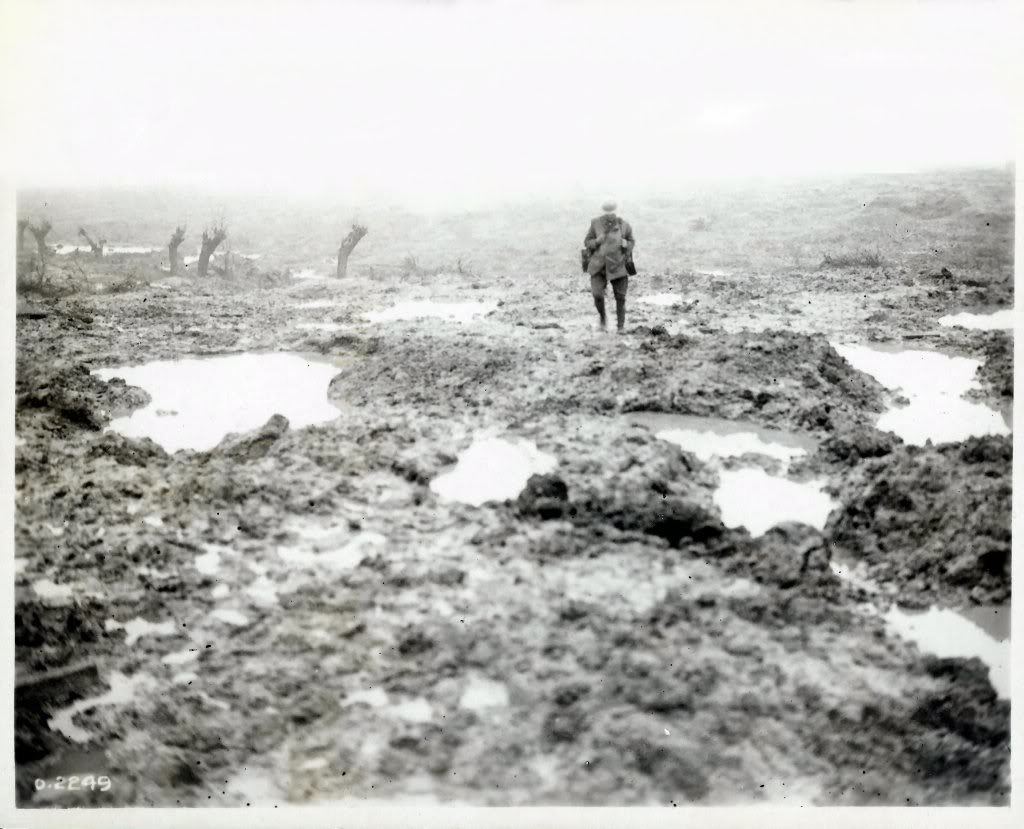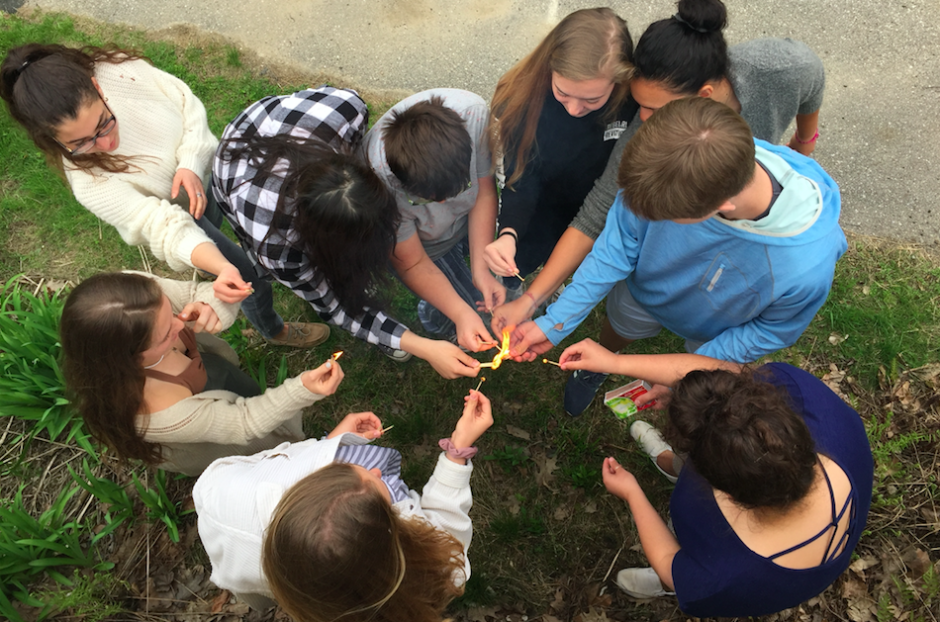Take a couple of seconds and think about: “What does a soldier carry”? Well, there are multiple answers to this question because a soldier carries many things. Some of your first thoughts might have been a backpack or some type of weapon, and although those are true soldiers carry many intangibles. In the wartime novel The Things They Carried by Tim O’Brien, the soldiers throughout his story carry feelings of grief, shame, love, heartbreak, innocence, and friendship. All the feelings that these soldiers carried amounted to a type of weight that obtained their mind and body. Each soldier carried different emotions but, they were all affected and had to ease the heaviness of their feelings by figuring out a way to cope with their emotions; some soldiers told stories, figured out how to escape the war, sought revenge or committed suicide.
One of the soldiers in the novel is a young medic named Mark Fossie who carries heartbreak from the “death” of the love of his life. Mark was deeply in love with a girl named Mary Anne Bell who was his girlfriend ever since grammar school. While at war Mark becomes lovesick and decides to fly Mary Bell to visit him. When Mary Anne Bell first arrived in Vietnam she was described as: “This seventeen-year-old doll in her goddam culottes, perky and fresh-faced, like a cheerleader visiting the opposing team’s locker room. Her pretty blue eyes seemed to glow.” Mary’s description depicts her young, innocent self not yet tainted by war. However, just a couple days after she arrived, Mary starts to become intrigued by the war, and the adrenaline buzz it gives her. As Mary Anne Bell performs more war duties like joining the medics plugging up holes or learning how to use an M-16 she began to change and Mark observed that “her body seemed foreign somehow–too stiff in places, too firm where softness used to be. The bubbliness was gone. The nervous giggling, too.” This observation that Mark makes shows the effect war can have on someone. As Mary is exposed to ambushing and sneaking around in the jungle, her personality completely transforms. Mary becomes enthralled by the entire war and land of Vietnam; she is now one with the jungle and her personality shows it: “There was no emotion in her stare, no sense of the person behind it” (O’Brien 105). The love of Mark Fossies life was a completely different person, though her body was still the one he knew, her mind was deep in the jungle. Mary’s transformation broke Mark Fossies heart, “the grief took him by the throat and squeezed and would not let go” (O’Brien 100). Mark could not deal with the “death” of who Mary was and did not want to let her go, but trying to transform her back drove him insane. Mark would stay up all night: “He looked sick. His eyes were bloodshot; his skin had a whitish, almost colorless cast.” (O’Brien 103). Mary was gone and Mark had a hard time coping with the fact that the war had changed her and this was detrimental to his health.
Shame and guilt are also very apparent throughout the story and affected Tim O’Brien and his decision to not run away from the war. In the chapter, “On The Rainy River”, readers learn that Tim is stuck between the choice of heading to Canada to escape war or to partake in it. To Tim, the war seemed wrong and he wanted no part in it, but since he was drafted he had an obligation to his nation to fight. Even if fighting was his obligation Tim felt he was not fit for war and often thought to escape to the Canadian border since his hometown of Worthington, Minnesota was not too far from it. One afternoon, Tim went up to Rainy River, the river separating the United States from Canada and was about to leave his family, friends, and whole life behind to run away from Vietnam, but he could not risk the embarrassment. Tim tried to run away because he believed this was morally right but “It was as if there were an audience to my life, that swirl of faces along the river, and in my head, I could hear people screaming at me. Traitor! They yelled… I couldn’t endure the mockery, or the disgrace, or the patriotic ridicule” (O’Brien 57). The swirl of faces that O’Brien imagined convinced him to head back home and accept his fate of heading to war. The lack of bravery that Tim displayed up at Rainy River is why he feels so shameful. Tim is overly upset with himself that he submitted to war and would maybe die all because he was too embarrassed not to. Tim manages his shame and guilt about his decision by writing war novels like The Things They Carried which allows him to express his feeling and not have to bottle them up inside.
Norman Bowker is a character who is unlike Tim and has a hard time expressing his emotions. Norman is an important character in the story who feels that Vietnam robbed him of his will to live. While in Vietnam, Norman along with Tim and other men in the Alpha Company were under mortar fire in a shit field. During the morters one of Normans friends Kiowa began sinking into the muddy field, Norman crawled over to Kiowa and tried to pull on his boot to get him out but most of Kiowa was already fully submerged. Norman was not able to save Kiowa that night and never forgives himself for it. In the chapters “Speaking of Courage” and “Notes”, O’Brien describes how Norman felt trapt returning home from the war with pain and guilt because he felt he had killed his friend. When Norman returns home, he tries to help ease the emotions he is dealing with by telling his story to someone but he does not know who would want to hear a sad story like that. On page 146, Norman tries to tell the intercom guy about Kiowa at a fast food drive through but becomes overwhelmed by his guilt and decides not to. After this attempt, Norman felt hopeless that “there was nothing to say. He could not talk about it and never would. The evening was smooth and warm” (O’Brien 147). Norman is essentially unable to cope with the idea that he killed Kiowa because he was unable to pull him out of the mud. The pain and grief from this war experience eventually took hold of his mind: “There’s no place to go. Not just in this lousy little town. In general. My life, I mean. It’s almost like I got killed over in Nam… Hard to describe. That night when Kiowa got wasted I sort of sank down into the sewage with him… Feels like I’m still in deep shit.” (O’Brien 150). Through this quote, it is clear that Norman has constantly felt trapped by the pain and grief of Kiowa’s death and that he had nowhere to escape to and no one to truly understand what he has gone through leading him to commit suicide.
The Vietnam War caused the soldiers to continually carry intangible emotions with them that were caused by all their experiences. Each man coped with the emotions they had to carry in different ways but in the end, every man was never the same again because of the war they experienced. Mark would always feel the heartbreak from losing the love of his love, Tim would always carry the weight of shame for not being able to stand up against the war, and Norman will die feeling with the pain and grief that he killed his good friend Kiowa.


This was one particular piece I really loved writing, because I was able to share my opinion on how the emotions soldiers carry effect themselves greatly. Explaining how certain situations lead to soldiers dealing with their emotions and how it may be difficult to do so. I liked being able to explain the different mechanism of dealing with the different emotions soldiers had to cope with in the story based on the tales Tim O’Brien shared throughout his novel.
I described how these emotions directly affected the soldiers, and I am really proud of myself for doing so and not being over wordy or complicated.
Em, I really loved your work here. The way you weave stories of the soldiers together to construct a larger vision of grief, trauma and sadness for soldiers is inspired. I also liked how you suggest soldiers desk with war baggage both in and out of the war. The writing is pointed and has a nice flow, too. Good piece!